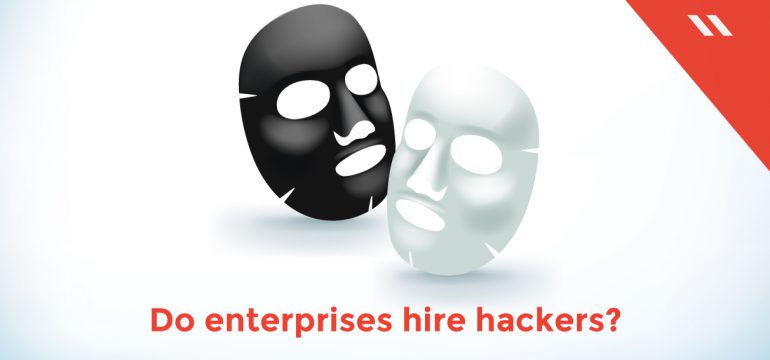Hackers, by definition, are skilled computer experts that have the ability to overcome technological problems. Thanks to the wide representation of hackers in books, movies and other popular culture, a large number of people have a fair idea of what hackers do.
Specific to cybersecurity though, the stereotypical image of a hacker is a technically proficient criminal secretly breaking into systems and causing mayhem to governments and enterprises — while that image is not completely incorrect, the actual picture is much larger.
At its most basic, hacking is referred to as the bypassing of security measures to enter a computer device or network. The individuals who do this are called hackers, but all hackers are not cybercriminals.
There are two broad categories of hackers which are –
White hat hackers
Think of white hat hackers as software testers — they are cybersecurity specialists who are not working maliciously.
Armed with the knowledge of bypassing systems, they are employed by enterprises to test their own cybersecurity defences as a part of an audit. This helps an enterprise in many ways — they understand their own vulnerabilities in a protected environment and get a better understanding of how cybercriminals work.
White hat hackers, who are also known as ethical hackers, can help bolster enterprise cyber defence by providing an outsider’s perspective to cybersecurity which can often get ignored.
White hat hackers are employed by many different organizations across the world to test their security preparedness. Seqrite offers Red Team Assessments as a service, that are a mock trials of how well an enterprise’s people, processes and technology hold up to cyberattacks conducted by highly trained security professionals who attempt to breach an organization.
Red Team Assessments were recently recommended by the Reserve Bank of India (RBI), India’s central banking institution, endorsing the use of Red Team Assessments for financial institutions.
White hat hackers are motivated by the desire to test and breach defences but the difference between them and Black hat hackers is that while the former does it with full knowledge of the enterprise, the latter does it to gain access to sensitive data in unsolicited ways.
Black hat hackers
Black hat hackers are the stereotypical hackers that are well-known in popular culture.
They are individuals who infiltrate an enterprise system through various means without the knowledge of the organization in question. They are primarily motivated by various factors – getting some sort of financial gain by stealing/locking confidential business data and then using it for ransom or selling this information on the Dark Web for monetization.
Without a doubt, black hat hackers can cause immense amount of damage. Once they enter a network, they can tamper with enterprise data, shut down systems, start Distributed Denial of Service (DDoS) attacks and more. Since they act in unpredictable ways and constantly find different methods to penetrate business systems, enterprises are constantly waging a war against them and trying to stay ahead of them by implementing advanced cybersecurity setups.
The best way though, to stay ahead of black hat hackers, is by bolstering all security aspects of an enterprise through powerful solutions.
Seqrite offers a range of security solutions for an enterprise assuring powerful protection against hackers and other threats.
Whether it is endpoint security or providing an integrated threat management solution for the network, enterprises can depend on Seqrite for their cybersecurity protection.




